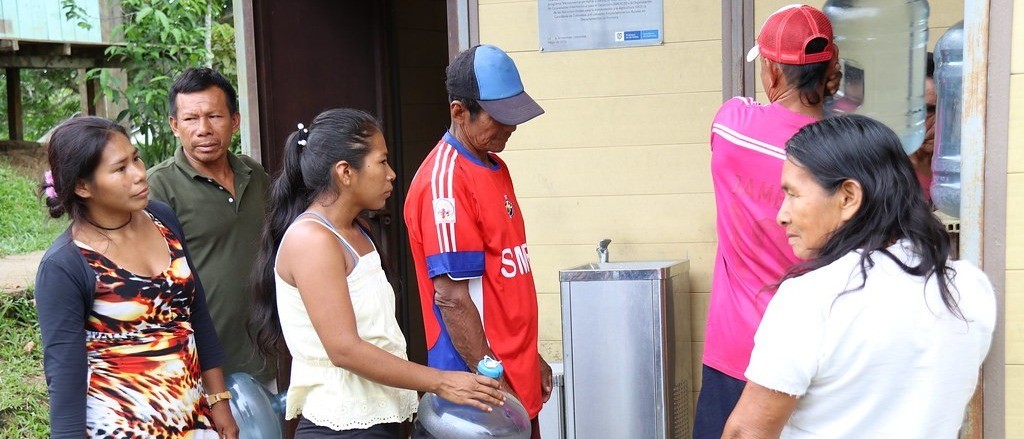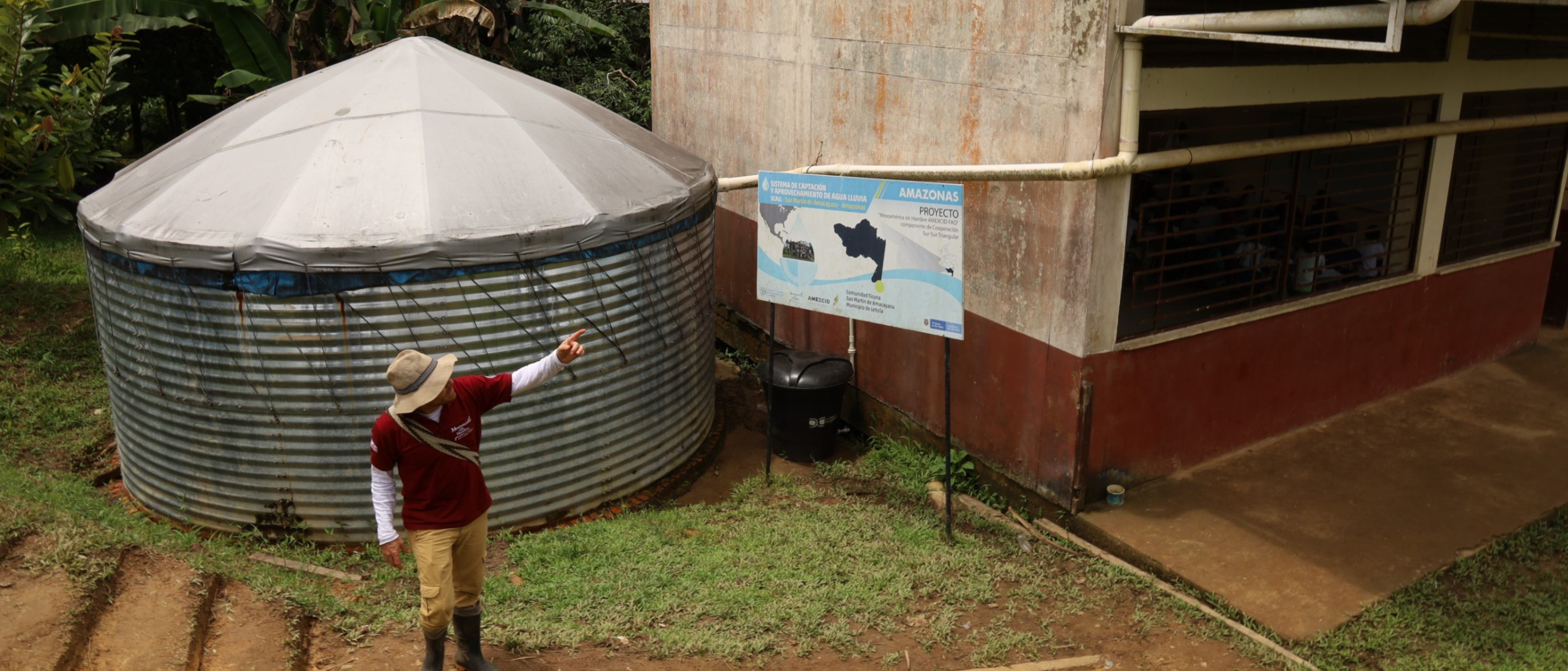.jpg?sfvrsn=12e11c6a_5)
From cotton farming to rural digitalization: South-south cooperation transforms lives
Through partnerships between FAO and the governments of countries such as Brazil, China, and Mexico, rural and Indigenous communities in Colombia and Chile are reviving traditions, innovating in their crops, and securing access to safe drinking water, demonstrating the power of solidarity across the Global South.
The Timote Chila family in their cotton field.
FAO/Manfreed Diaz
12/09/2025
With only five years left to achieve the United Nations 2030 Agenda and its Sustainable Development Goals, the world faces a complex scenario where climate crises, economic and social tensions, and a widening digital divide intersect. Extreme poverty and hunger still affect millions of people, while in many countries, debt burdens limit investment in health, education, and other essential services.
In this context, Triangular South-South Cooperation emerges as a driver of hope and change in Latin America and the Caribbean. Built on solidarity and the exchange of knowledge among countries of the Global South, this form of cooperation provides practical, innovative, and locally adapted responses that complement traditional development aid.
The stories we share to mark the United Nations Day for South-South Cooperation (12 September) demonstrate how international cooperation, translated into concrete actions, is transforming lives. In Colombia, an Indigenous family has revived cotton farming through innovative and sustainable practices; in Chile, a rural producer is opening new opportunities for her business thanks to digital transformation; and in the Colombian Amazon, an Indigenous community secured access to safe drinking water through low-cost, replicable technological solutions tailored to local needs.
Brazil–FAO Cooperation
In Coyaima, Tolima, the Timote Chila family—Eduvin, his wife Alix and their son Armando, Pijao Indigenous farmers—found in cotton a way to revive their culture and improve their livelihoods. In 2017, they joined +Cotton Colombia, a South-South Cooperation initiative between FAO, the Government of Brazil through the Brazilian Cooperation Agency (ABC), and Colombia via the Ministry of Agriculture and Rural Development (MinAgricultura). The project enabled them to transform one hectare of their farm into the Pilot Production Unit Los Braciles, where they combined ancestral knowledge with sustainable practices and agricultural innovations.
With FAO’s technical support, the expertise of Brazilian institutions, and the knowledge of Colombian technical teams and farmers, they learned to restore soil quality by intercropping cotton with sesame, to reduce chemical use through biological pest control, and to adopt adapted technologies such as the rotary planter. The results were remarkable: they doubled their production and extended these practices across their remaining eight hectares, reaching harvests of more than 20 tons. Other producers have since begun replicating these practices.
The impact went beyond production. The family strengthened their food security with maize and vegetables for self-consumption, shared their knowledge with their community, and inspired other farmers to return to cotton. “Cotton creates jobs for our companions,” said Eduvin. With the new income, they improved their home and encouraged their son to study at Colombia’s National Training Service (SENA) agricultural school.
Today, Eduvin and Alix know that their farm grows more than cotton: it cultivates culture, pride and innovation. Thanks to South-South Cooperation, Pijao traditions linked to cotton are flourishing again, showing how solidarity among countries can transform entire communities.
FAO–Mexico Cooperation
In Colombia’s Amazon rainforest, where rivers seem endless, safe drinking water was paradoxically scarce. In the Indigenous community of Zaragoza, families relied on rainwater or river water for drinking, cooking and washing—causing frequent illnesses among children and school absences. “My children missed many classes due to stomach infections,” recalls Ángela Parente.
This changed when the community became part of an initiative of the Mesoamérica sin Hambre programme, led by the Mexican Agency for International Development Cooperation (AMEXCID) and FAO, with support from Colombia’s Ministry of Foreign Affairs and local authorities.
The programme not only enabled the installation of rainwater harvesting and utilization systems (SCALL), but also did so through a participatory approach: technicians, community leaders and Indigenous youth learned together how to build, operate and maintain plants that now purify up to 6,000 liters of water daily for human consumption.
Water collected in tanks is made safe to drink using sand, charcoal and ultraviolet light filters. Each family fills their containers at the plant, turning water access into a shared responsibility. “Before, fetching water was a concern. Now it is a commitment that unites us,” says Ángela.
With FAO’s support, the model has been replicated in other communities in the Amazonas and Guainía departments, including border areas. Beyond preventing diseases, the SCALL systems have improved school attendance and strengthened community autonomy, ensuring the human right to water.


Families waiting to fill their containers at the plant.
FAO–China Cooperation
In the commune of Portezuelo, in Chile’s Ñuble Region, nestled among vineyards and the coastal mountain range, lives Ana María Rabanal, a smallholder farmer who learned from her parents the art of growing grapes and making wine. Today, together with her family, she keeps those traditions alive while also producing honey, vegetables and poultry—activities that have sustained her household and raised her children.
For years, her market reach was limited to her immediate community. Without internet access or digital tools, administrative procedures required long trips, and sales opportunities were restricted to intermediaries or neighbors. “Before, everything was slower. We were only known locally,” recalls Ana María.
Her reality began to change when she joined the South-South Cooperation: Digital Transformation and Agricultural Innovation project, an FAO initiative supported by the People’s Republic of China. The project aims to revitalize rural livelihoods in the post-pandemic era through connectivity and digital training. Ana María actively attended workshops, even traveling to Santiago to share her experiences alongside representatives from 11 other countries. “I learned about social media and how to market my products online. It was a huge support for farmers,” she says.
Today, thanks to the digital ecosystem established in her community center, she can complete administrative procedures online, access information to improve her crops, and promote her wine and honey on social media together with other members of the Trehuaco winegrowers’ association. Connectivity has not only saved her time and resources but also opened new market opportunities, projecting her work beyond Portezuelo. “Connectivity and digital tools are essential—they help us improve our incomes and showcase what we produce,” she affirms.
Empowered by South-South Cooperation, Ana María feels her work is now better prepared for the future: a blend of farming tradition and digital tools that strengthens her community and highlights the value of family farming in Ñuble to the wider world.
These experiences show that South-South and Triangular Cooperation is more than a mechanism of mutual support among countries: it is also a tool for innovation and resilience, empowering communities and driving them towards a fairer and more sustainable future.
By pooling knowledge and resources, partner countries help expand good practices, accelerating progress towards Zero Hunger.
.jpg?sfvrsn=2b8ef28_5)
Ana María Rabanal after attending one of the project’s training sessions.
Through partnerships between FAO and the governments of countries such as Brazil, China and Mexico, rural and Indigenous communities in Colombia and Chile are reviving traditions, innovating in their crops, and securing access to safe drinking water—demonstrating the power of solidarity across the Global South.
